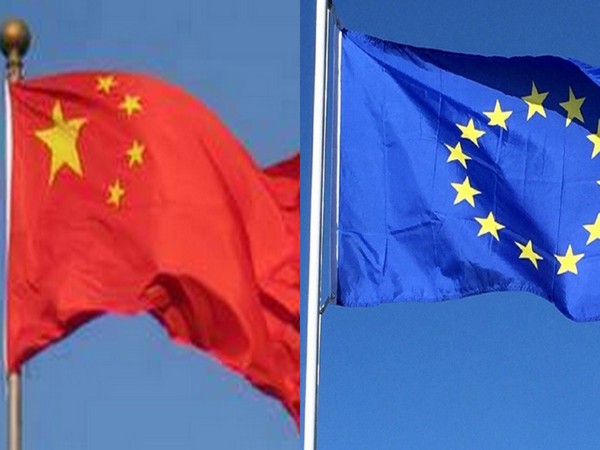Xinjiang forced labor issue may hit China's investment agreement with EU
With the European Parliament (EP) passing a resolution on forced labour and the condition of the Uyghurs in the Xinjiang Uyghur Autonomous Region (XUAR), China's plans to have investment agreements with the European Union (EU) member states seem to be now under threat.

- Country:
- China
With the European Parliament (EP) passing a resolution on forced labour and the condition of the Uyghurs in the Xinjiang Uyghur Autonomous Region (XUAR), China's plans to have investment agreements with the European Union (EU) member states seem to be now under threat. "Labour rights in China is a hot potato, particularly given the parliament's recent urgent resolution on Xinjiang. If there are no proper commitments on International Labour Organisation, then it will be extremely difficult," South China Morning Post quoted a source with knowledge of the thinking of both the EU Parliament and the European Commission, which conduct negotiations with China, as saying.
The EP on December 18 passed a resolution on forced labour and the condition of the Uyghurs in the XUAR while calling on the EU to proactively work towards an independent UN inquiry on China with a view to ensuring accountability for the crimes committed. "The situation in Xinjiang, where more than 10 million Muslim Uyghurs and Kazakhs live, has rapidly deteriorated, particularly since the launch of the Chinese Government's 'Strike Hard against Violent Terrorism' campaign in 2014", said an EP resolution.
It added, "Uyghurs and other primarily Muslim ethnic minorities in the Xinjiang Uyghur Autonomous Region have been subjected to arbitrary detention, torture, egregious restrictions on religious practice and culture, and a digitalised surveillance system so pervasive that every aspect of daily life is monitored -- through facial recognition cameras, mobile phone scans, the large-scale illegal collection, aggregation and processing of personal data". The resolution said there has been a general strengthening of the Chinese regime and a toughening of the treatment of minorities, in particular of Uyghurs, Tibetans and Mongolians, with the aim of assimilating them through the imposition of the Chinese majority lifestyle and communist ideology.
According to credible reports, more than one million people, are, or have been, detained in what are being called 'political re-education' centres, in the largest mass incarceration of an ethnic minority population in the world today. The internment camp system in the XUAR is expanding, with more than 380 suspected detention facilities having been newly built or expanded since 2017, and at least 61 detention sites newly constructed or expanded between July 2019 and July 2020.
The EP observed that the Chinese authorities are systematically subjecting Uyghur women of childbearing age to forced abortions, intrauterine injections and sterilisation, with 80 per cent of all new intrauterine device (IUD) placements in China in 2018 performed in the Uyghur region, despite the fact that it makes up only 1.8 percent of China's population; whereas such measures to prevent births within the Uyghur population could meet the criteria for belonging to the worst crimes against humanity. (ANI)
(This story has not been edited by Devdiscourse staff and is auto-generated from a syndicated feed.)
ALSO READ
Floods swamp swathes of Russia and Kazakhstan but worse still to come
Russia and Kazakhstan battle record floods as rivers rise further
EXPLAINER-Floods in Russia and Kazakhstan: How bad are they?
Russia and Kazakhstan battle record floods as rivers rise further
Nearly 12,000 homes are flooded in a Russian region bordering Kazakhstan as water levels keep rising










